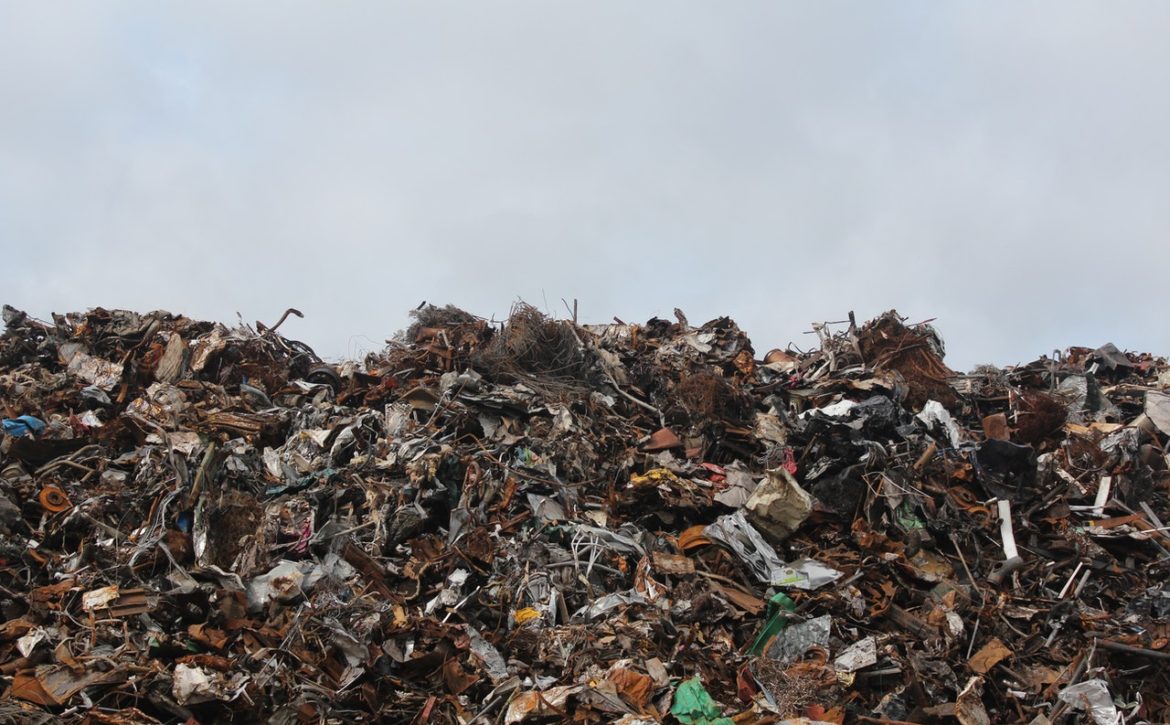
Review of the Sustainable Waste Mangement Bill 2021
Sustainable Waste Management Bill/Act Review
By Ian Njathi Ngugi(LL.M, LL.B, KSL Dip)
The Sustainable Waste Management Bill is a breath of fresh air in the sense that for a long time the issue of waste management was left to the county councils and as such it was not dealt with on a national level. The Act comes to address systemic issues that have long plagued collection and separation of waste as well as recyclability and reuse of waste materials in a sustainable manner.
The Act was established to provide a legal and institutional framework for sustainable waste management and among its objects the Act was to; promote sustainable waste management and procurement services as well as establish environmentally sound infrastructure for sustainable waste management in addition to creating an enabling environment for employment in green economy, waste management, recycling and recovery industry. Furthermore, the Act was established to promote and ensure effective delivery of waste services.
Guiding Principles
The Act is guided the general principles of the right to a clean and healthy environment espoused in the Constitution of Kenya 2010. This is as it seeks to promote the rights of citizens to a clean and healthy environment and who as a result of lack of proper systems for sustainable waste management have long been plagued by mountains of haphazardly disposed waste resulting in toxic landfills that have caused various ailments and befoulment of air among other effects.
Secondly, the Act enshrines the precautionary principle which posits that in the event there is scientific uncertainty with regards to a particular action, such an event shall not be used to postpone measures to prevent environmental degradation where there are threats of damage to the environment. In addition to the precautionary principle, the Act also enshrines the polluter pays principle which posits that the cost of cleaning up any element of the environment that has been damaged by pollution, the cost of beneficial uses of the environment lost as a result of pollution, and any other costs associated with or incidental to pollution shall be borne by the polluter.
Additionally, the Act promotes ecosystem/ecological services payment to persons such as farmers and landowners who have taken steps towards conservation of natural resources as an incentive. This serves to encourage farmers and landowners as well as other persons to take up sustainable waste management thus promoting efforts of maintaining a clean and healthy environment. In line with this principle, the Act further encourages zero waste principle where products are designed and managed to reduce volume and toxicity of waste and materials, conserve and recover all resources and prevent burning or burying of resources as this tends to pollute the environment. The main goal of these guiding principles is to achieve sustainable development goals.
Powers, functions and duties of the Cabinet Secretary (CS) Environment and Natural Resources.
The Act gives the CS certain powers such as formulation of policies and regulations with regards to sustainable waste management in consultation with County Governments and National Environmental Management Authority (NEMA).
The Act calls upon the CS to prescribe measures for reduction of waste that allow for environmentally sound re-use, recycling and recovery of materials from waste.
It is also the responsibility of the CS in conjunction with the relevant players in sustainable waste management, to come up with a National Waste Management Strategy.
The CS is also tasked to coordinate adherence to international obligations with regards to waste management and Nationally Determined Contributions (NDC) of waste and chemical conventions
Additionally, the CS is required to oversee and coordinate administration of the Act.
Establishment of the Waste Management Council
The Cabinet Secretary shall establish the Waste Management Council within a year of the operationalization of the Act. The Council will be headed by the Cabinet Secretary and is mandated to;
- Provide analytical support on sustainable waste management to ministries, agencies and county governments
- Serve as the national knowledge and information management centre for sustainable waste management
- Collaborate with other agencies at the international, national and county government level with regards to identifying sustainable waste prevention, reduction, reuse, recycling and disposal strategies; optimising opportunities to mobilise financing for sustainable waste management and ensuring coordination across national and county government entities
- Develop national strategy for reduction of land-based pollution to the marine environment
- Coordinate activities related to Kenya’s international obligations relating to waste and chemical conventions
The Council’s mandate is designed to ensure that the country has an institutional framework with regards to the operationalization of sustainable waste management and to act as a go between for international, national and county government organs. The establishment of such a body provides for checks and balances for the agencies and bodies involved in sustainable waste management and also acts as a steering committee for the country’s Sustainable Waste Management agenda.
Functions of NEMA under the Act
The Act outlines various duties with regards to sustainable waste management that are to be handled by NEMA as the main environmental regulatory body and they include:
- Development of standards and guidelines on sustainable waste management
- Providing an avenue for informing the public on sustainable waste management, enforcement of waste management regulations and conducting research, awareness creation and training on sustainable waste management.
- Issuance of licenses for waste management activities save for where county governments have jurisdiction.
- Development of action plan for implementation of the National Waste Management Strategy as well as providing analytical reports and support on waste management to ministries, agencies and county governments
An issue that is likely to arise is the multiplicity of roles or uncertainty of roles between NEMA and county governments particularly with regards to the issuance of licenses. Given that both bodies have the power to issue licenses, sustainable waste practitioners may find themselves in a situation where they are required to apply for waste management licenses from both bodies making it an expensive affair acquiring licenses. It is in this regard that the Act ought to address the relevant party that will issue licenses to avoid instances of double application and to provide for accountability of the practitioners.
County Government functions, policy and regulations with regards to Sustainable Waste Management
The Act acknowledges that County governments are a key component in realising sustainable waste management given that among the devolved functions waste management has been allocated to the counties. It is for this reason that the Act has set out various functions that the county government must accomplish, they include:
- Ensuring that county legislation on waste management is in compliance with the Act
- Ensure that waste generated in the county is disposed within county boundaries unless there is an agreed framework for intercounty transportation
- Provide central collection centres for recyclable materials
- Establish waste management infrastructure to promote source segregation, collection, reuse and set up for material recovery
Among the policies and regulations that are to be enacted by county governments include policies that call for the closure of open dumpsites, procedures for sustainable waste management, expansion of market for recycled products for pre-consumer and post-consumer recycled products and the promotion of health safety and environmental standards.
Additionally, the Act calls upon the county government to set up policies and regulations that deal with the use of land under the county governments jurisdiction for waste management.
Take back schemes and Extended Producer responsibility
Among the key elements introduced in the Sustainable Waste Management Act is the take back schemes whereby products and packaging that give rise to negative impacts on the environment should be returned to the seller. Such products must be specifically marked and the seller is obligated to take back the products. An example of this is where a customer buys a television set, after using of the product and is of the view there are better television sets in the market, rather than put the television set in a dumpster, the customer may return the television set to the seller who is obligated to take back the television set for reuse or recycling. The Act further provides that regulations with regards to take back schemes will be enacted to better ensure that sustainable waste management.
Another aspect covered under the Act is the Extended Producer Responsibility (EPR). This involves entities engaged in production, conversion or importation of products and packaging, such entities are required to take extra steps to ensure that their products have minimal environmental impacts. Some of the measures under the EPR include the responsibility of the producer to design environmentally friendly and recyclable products and packaging, ensure physical collection and management of waste and provision of financial contributions to a collective scheme.
Additionally, the Act calls for the use of special labelling, return to seller, producer, importer, brand owner or agent after the post-consumer use of the products as requirements under the EPR program.
Furthermore, the Act calls for the establishment of collective responsibility organisations among other policy requirements such as submission of annual reports, prescription of design standards for the products and packaging as well as the setting up of county material recovering facilities for final sorting, segregation, composting and recycling of waste generated or transported to the county and transport of residual waste to long term storage/disposal facilities or landfills which must be licensed by NEMA.
Role and duties of Public and Private entities
Public entities
The Act addresses the roles of accounting officers in public entities with regards to sustainable waste management where such officers must ensure that persons in charge of or in control of a facility under their jurisdiction are minimising waste generated by adopting cleaner production methods through the conservation of raw materials and energy, elimination of the use of toxic emissions and monitoring product cycles.
Additionally accounting officers in public entities are required to ensure proper segregation and disposal of waste, clean up and restoration of sites to natural or near natural state as well as ensuring the preparation of waste management plans that integrate with the corporate strategy plan of the public entity
the Act as a mode of ensuring to their role provides that, failure to discharge one’s duty as an accounting officer in charge of a duty station with regards to waste management is an offence and on conviction the person charged will be liable to a fine not exceeding Kshs. 200,000 or an imprisonment term not exceeding one year or both.
Additionally, an officer under the public entity who discharges waste contrary to the provisions of the Act commits an offence and will be liable upon conviction to a fine not exceeding Kshs. 50,000 or a prison term not exceeding 6 months or both.
This shows that the Act places individual responsibility to persons in public entities and more particularly accountants in charge of duty stations. This ensures that such persons in public entities also allocate resources to ensuring sustainable waste management is upheld and accounted for in public entities such as government offices and agencies.
Private Sector Entities
The Act provides for private sector entities to take part in sustainable waste management in the sense that they are required to prepare a 3year waste management plan and submit an annual monitoring report specifying the actual quantities of waste generated by the entity, waste and management methods applied by the entity along with any other relevant information NEMA may require.
The Act places upon the Private Sector Entity certain duties that they must carry out. Such duties include
- Adopt cleaner production principles through; improvement of production processes via conservation of raw materials, limiting use of toxic materials and reducing toxic emissions, monitoring products cycles among other modes.
- Identifying and eliminating potential negative impacts of waste they produce
- Enabling recovery, reuse and recycling of waste products
- Collecting, segregating and disposing of waste in accordance with the provisions of the Act
The Act places an obligation on private sector entities to promote sustainable waste management processes and failure to observe the provisions of the Act will amount to an offence and the Private entity will be subject to various penalties if found culpable.
Public Participation and Access to information
Public participation and access to information are important tenets in ensuring enforcement an implementation of environmental principles. The Act provides for access to information particularly for waste management records and also encourages public participation in operationalization of the Act in the procedures set out under the Constitution and other written law.
Other Important Aspects covered in the Act
The Act provides for the allocation of fees for waste management activities and services by county governments and also calls for the introduction of incentives by government agencies for waste management activities and services in all levels and to the public to promote sustainable waste management.
The Act provides that, NEMA shall monitor and review the performance and compliance of the provisions of the Act by private entities and county governments as well as public bodies charged with ensuring sustainable waste management.
To aid in ensuring enforcement and compliance of the provisions of the Act, the National Environmental Complaints Commission (NECC), shall establish a complaints and redress mechanism where any person with a complaint may seek audience and redress as well as submit evidence backing their claims.
The Act further provides for dispute resolution mechanisms whereby any person or entity aggrieved by a refusal to grant a license, imposition of any condition, limitation or restriction on a license granted, any fee payable or restoration order given may within 60 days of the occurrence appeal to the National Environmental Tribunal.
An important aspect of the Sustainable Waste Management Act is the introduction/development of a curriculum on sustainable waste management to mould young minds on the importance of maintaining a clean and healthy environment and ensure a sustainable future.
Latest Posts
Step by Step Guide to Subdvision of Land in Kenya
Agnetah Muli LL. B, KSL Dip. What is Subdivision? The process of subdivision involves the division of land into two or more parcels. The purpose is to...
COMPREHENDING REDUNDANCY IN EMPLOYMENT LAW – KENYA
“Fairness in all forms of termination is the staple of labour law”- Anon By Quincy Jesse Kiptoo LL.B. (Hons), CPM, Dip in Law The word Redundancy...

